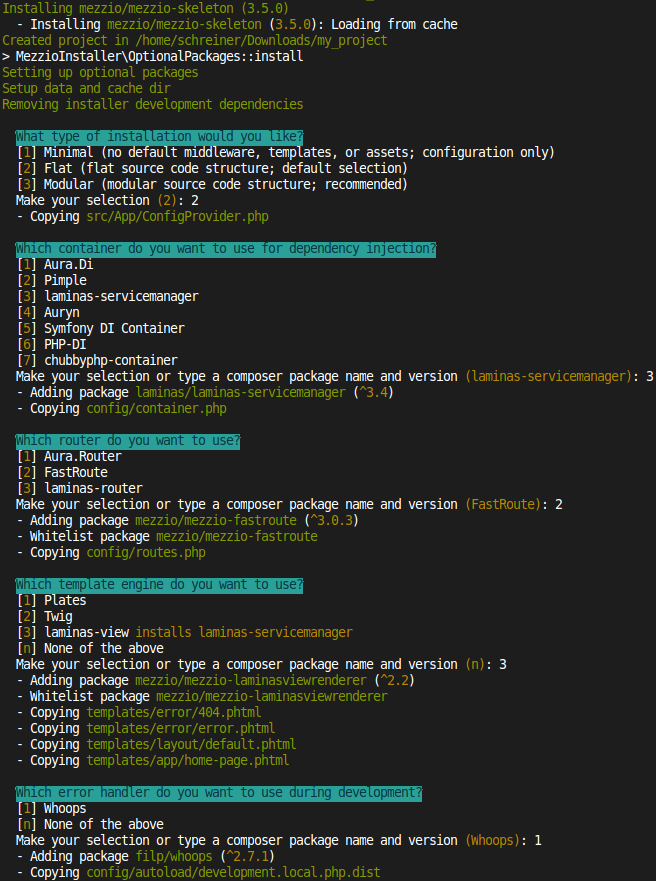Develop PSR-7 middleware applications in minutes!
mezzio builds on laminas-stratigility to provide a minimalist PSR-7 middleware framework for PHP, with the following features:
- Routing. Choose your own router; we support:
- DI Containers, via PSR-11 Container. Middleware matched via routing is retrieved from the composed container.
- Optionally, templating. We support:
We provide two ways to install Mezzio, both using Composer: via our skeleton project and installer, or manually.
The simplest way to install and get started is using the skeleton project, which includes installer scripts for choosing a router, dependency injection container, and optionally a template renderer and/or error handler. The skeleton also provides configuration for officially supported dependencies.
To use the skeleton, use Composer's create-project command:
composer create-project mezzio/mezzio-skeleton <project dir>This will prompt you through choosing your dependencies, and then create and
install the project in the <project dir> (omitting the <project dir> will
create and install in a mezzio-skeleton/ directory).
You can install Mezzio standalone using Composer:
composer require mezzio/mezzioHowever, at this point, Mezzio is not usable, as you need to supply minimally:
- a router.
- a dependency injection container.
We currently support and provide the following routing integrations:
- Aura.Router:
composer require mezzio/mezzio-aurarouter - FastRoute:
composer require mezzio/mezzio-fastroute - laminas-router:
composer require mezzio/mezzio-laminasrouter
We recommend using a dependency injection container, and typehint against PSR-11 Container. We can recommend the following implementations:
- laminas-servicemanager:
composer require laminas/laminas-servicemanager - Pimple (see docs for more details):
composer require laminas/laminas-pimple-config - Aura.Di (see docs for more details):
composer require laminas/laminas-auradi-config
Additionally, you may optionally want to install a template renderer implementation, and/or an error handling integration. These are covered in the documentation.
Documentation is in the doc tree, and can be compiled using mkdocs:
mkdocs buildAdditionally, public-facing, browseable documentation is available at https://docs.mezzio.dev/mezzio/







